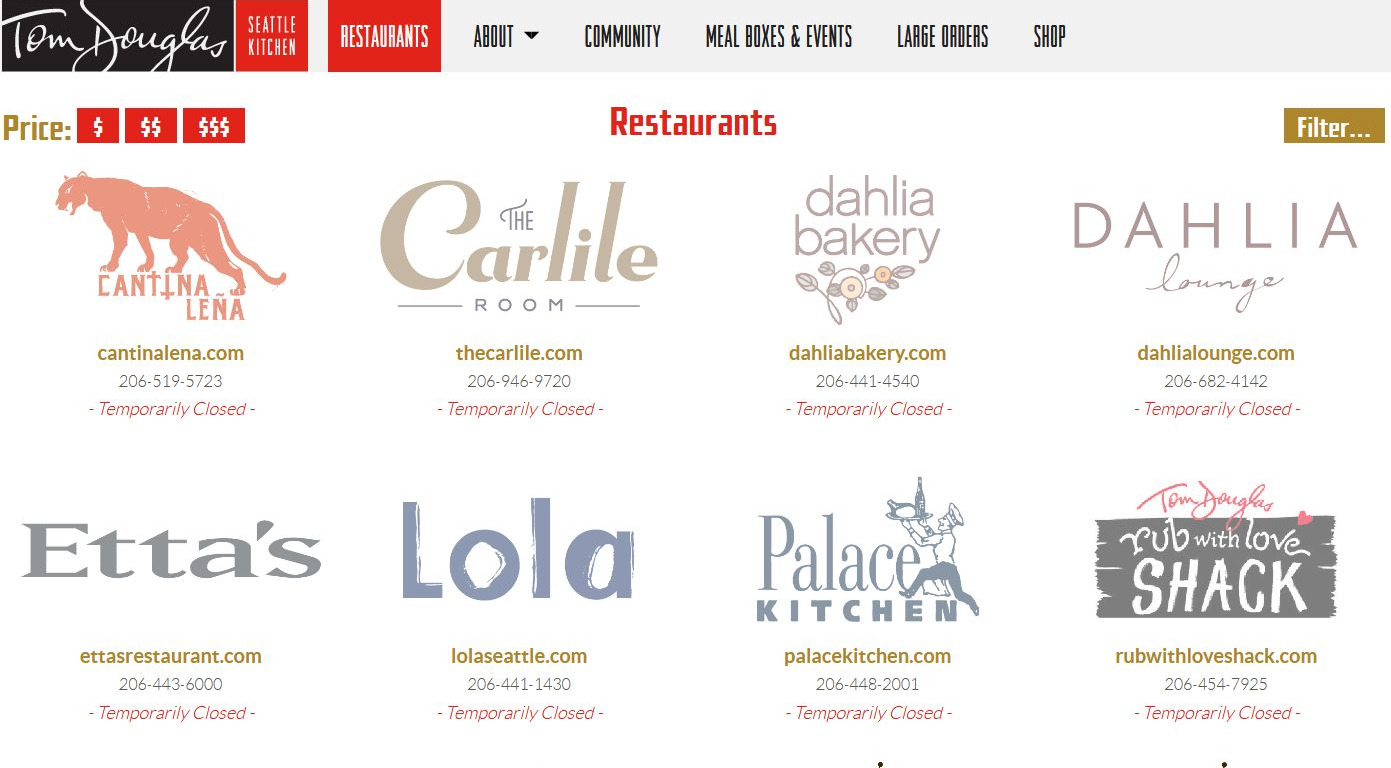
The bell now tolls for Seattle restaurants, with 20 new permanent closures tallied up by The Seattle Times. Among the newly dead: Il Corvo, a tiny beloved pasta joint in Pioneer Square, Bill’s Off Broadway, a Capitol Hill hangout, and The Brooklyn, an expense-account eatery in lower downtown.
For sure, high rents and out-of-town owners of commercial spaces are factors. Seattle’s Amazon boom produced a baby boom of restaurants and investors. The surge of tourism (conventions and cruise ships) spawned more and drove up prices. And the city council’s compliance in enacting labor-union-led reforms (minimum wage, scheduling limits) narrowed margins.
But the city could be doing more. Many other cities moved quickly to facilitate outdoor spaces (sidewalks, alleys, parking strips), while Seattle is just getting around to these changes. Other cities are adapting streets and taming cars, thus increasing public space and reducing noise. Struggling cities actively try to help small businesses and are geared up to help, but economically complacent Seattle is not.
The main killing field will be Seattle’s downtown, where restaurants were once buoyed by tourists, office workers, business visitors, arts-audiences, and shoppers — all in steep decline. Other adverse factors are high rents, congestion, crime (particularly shoplifting), and homelessness.
And who speaks for the downtown, politically? When the city council had all its members elected citywide (now only two of nine are), these nine members raised money and did favors for downtown interests. Downtown property values pump money into the city budget, but “downtown issues” (too privileged, too wealthy, too dominant) are now close to political poison. New Councilmember Andrew Lewis, who represents the downtown/Queen Anne/Magnolia district, ought to be the champion for downtown, but he pretty quickly joined the Labor-Left bloc that now controls the council. Mayor Durkan? Not so much.
As for neighborhood restaurants, which have no political problems and are often beloved by a steady customer base, they too pay high rents to absentee landlords. The kind of steps that would help them move outdoors and gain more space for distancing tables quickly run into objections from the neighborhood and adjoining shops worried about lost parking spots.
As a result many of our restaurants, a mainstay of Seattle livability, are thrown into a tailspin from the recession, the pandemic, the city’s political logjams, and high regulation.
So far, a big civic shrug.
Discover more from Post Alley
Subscribe to get the latest posts sent to your email.

Why isn’t Seattle doing more to help restaurants survive? Because restaurants don’t deserve any more help than any other small business.
The boomer generation put restaurants high on the quality-of-life scale–maybe too high. Our frequent mantra “living well is the best revenge” sounds pretty hollow these days: Revenge on whom, exactly?
We’re not really feeling the owners’ servers, plongeurs’ pain; it’s the loss of our own pet pleasure that’s got us weeping.
If we had laid aside a tithe of our expenses serial gourmandise for less trendy aspects of “the good life” like cultural institutions, they wouldn’t be in such hopeless condition today.
Cocaine was the drug of choice in restaurant kitchens doing the glory days; and the dining-out habit was the respectable cocaine of the middle class. I can’t say I think laying off it for a while will do much real damage to the public weal. And if you just can’t bear the withdrawal symptoms, indulge in buying wine on line. Those vintners and grape growers are hurting just as much as that dear little trattoria round the corner.